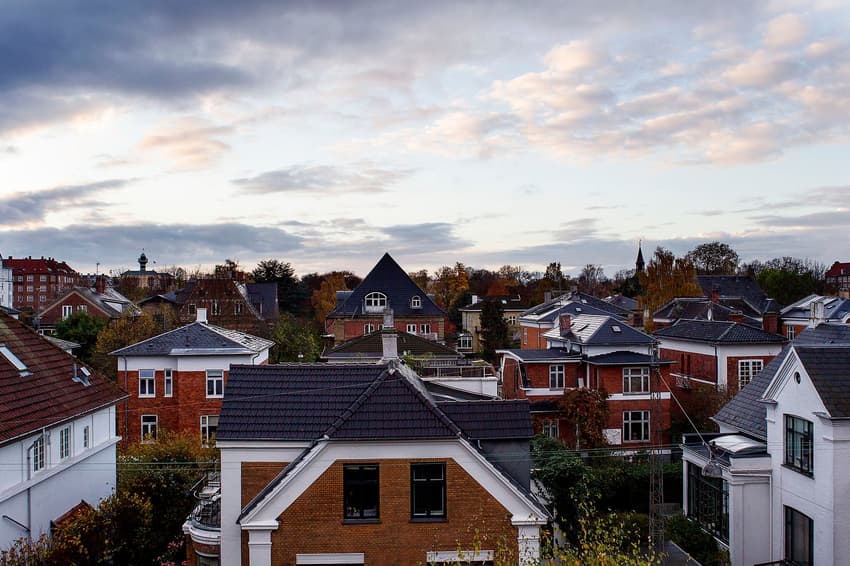Danish homeowners with flexible rate mortgages could face raised costs

Interest rates on flexible rate mortgages are likely to increase from next year after auctions by real estate lender Totalkredit on Monday.
Totalkredit, a subsidiary company of bank Nykredit, is the largest provider of real estate loans for private homes.
Because of the way the Danish mortgage system is structured, mortgage sums are loaned primarily by banks which specialise in real estate loans know at realkreditinstitutioner. The remainder of the mortgage is lent by the customer’s bank, which approves the mortgage to the homeowner.
Totalkredit works with a number of major Danish banks including Arbejdernes Landsbank, Spar Nord and Sydbank.
The company auctioned flexible loans on Monday with resulting interest rates exceeding 3 percent on the F1, F3 and F5 loan types, news wire Ritzau reports.
That means the interest on these types of mortgages will be at their highest for several years.
“This round of interest revision auctions has ended with massive interest rate increase,” Arbejdernes Landsbank private economist Brian Friis Helmer Ritzau in a written comment.
“That is in stark contrast to the many years with auctions that finished with interest rates in the negative,” he said.
Helmer said that people with affected mortgages should look at their preliminary tax returns for 2023, which were published last week, in order to help reduce the impact of additional costs.
READ ALSO: Forskudsopgørelse: Why checking your preliminary Danish tax return matters
“Because if you choose to register, in advance, the higher costs due to interest, you will get a higher interest rate deduction [rentefradrag in Danish, ed.] with immediate effect,” he said.
“If you don’t do anything, that doesn’t mean you’ll be landed with more tax, but you’ll get the money back in spring 2024,” he noted.
Unlike mortgages with fixed rates, variable rate mortgages see their interest rates adjusted on a regular basis.
F3 loans, for example, are adjusted every three years, while F5 loans have adjustments every five years.
The interest rates are revised because the bonds [Danish: obligationer] on which the loans are secured expired and must be replaced. The interest rates for the new bonds are set at auctions.
Comments
See Also
Totalkredit, a subsidiary company of bank Nykredit, is the largest provider of real estate loans for private homes.
Because of the way the Danish mortgage system is structured, mortgage sums are loaned primarily by banks which specialise in real estate loans know at realkreditinstitutioner. The remainder of the mortgage is lent by the customer’s bank, which approves the mortgage to the homeowner.
Totalkredit works with a number of major Danish banks including Arbejdernes Landsbank, Spar Nord and Sydbank.
The company auctioned flexible loans on Monday with resulting interest rates exceeding 3 percent on the F1, F3 and F5 loan types, news wire Ritzau reports.
That means the interest on these types of mortgages will be at their highest for several years.
“This round of interest revision auctions has ended with massive interest rate increase,” Arbejdernes Landsbank private economist Brian Friis Helmer Ritzau in a written comment.
“That is in stark contrast to the many years with auctions that finished with interest rates in the negative,” he said.
Helmer said that people with affected mortgages should look at their preliminary tax returns for 2023, which were published last week, in order to help reduce the impact of additional costs.
READ ALSO: Forskudsopgørelse: Why checking your preliminary Danish tax return matters
“Because if you choose to register, in advance, the higher costs due to interest, you will get a higher interest rate deduction [rentefradrag in Danish, ed.] with immediate effect,” he said.
“If you don’t do anything, that doesn’t mean you’ll be landed with more tax, but you’ll get the money back in spring 2024,” he noted.
Unlike mortgages with fixed rates, variable rate mortgages see their interest rates adjusted on a regular basis.
F3 loans, for example, are adjusted every three years, while F5 loans have adjustments every five years.
The interest rates are revised because the bonds [Danish: obligationer] on which the loans are secured expired and must be replaced. The interest rates for the new bonds are set at auctions.
Join the conversation in our comments section below. Share your own views and experience and if you have a question or suggestion for our journalists then email us at [email protected].
Please keep comments civil, constructive and on topic – and make sure to read our terms of use before getting involved.
Please log in here to leave a comment.